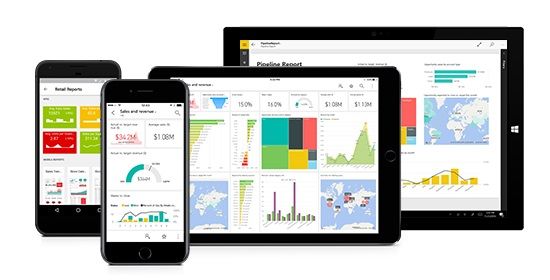As our society transitions further into digitalization, link-building as part of an effective SEO strategy has become more apparent. Businesses today utilize link-building strategies to increase website traffic and sales while reaching wider audiences and expanding sales efforts. One of the more difficult parts of link-building strategies involves measuring its progress and success over time – understanding these metrics will inform decision making processes, inform strategy revisions and demonstrate return-on-investment (ROI).
Link Building Benefits Increased Online Visibility Its Link building increases website exposure by garnering backlinks from authoritative sites; this increase can contribute to better organic search rankings.
Target Audience Reach
Link building plays an essential part in reaching targeted audiences by building backlinks from websites catering to them.
Establishing Authority and Credibility
Link building can help businesses establish authority and credibility within their industry or niche. When trusted websites link back to a business website, search engines receive signals that the brand is trustworthy – increasing conversions.
Improve Search Engine Rankings
Search engines consider backlinks an integral component of their ranking algorithms, so link building is key for businesses hoping to enhance their SEO results by building quality links from authoritative websites that increase organic traffic, visibility and potential customer acquisition. Higher rankings could translate to increased organic traffic volumes as well as greater organic visibility leading to potential increased organic customer conversion rates and overall visibility within search results pages (SERPS).
Brand Exposure and Recognition
Link building helps businesses expand brand exposure and awareness among potential customers. When websites gain links from reputable websites, this exposes their brand to wider audiences resulting in higher recognition by potential clients and more brand recognition for existing clients alike.
Link Building Aims at Gaining a Competitive Edge Link building can give businesses an edge in the online marketplace. Employing an effective strategy for acquiring quality backlinks allows businesses to distinguish themselves from rivals while increasing online visibility and drawing in more customers.
Establish Key Metrics for Link-Building Success
A critical first step to measuring the success of any link-building strategy is defining key metrics. They should reflect your business objectives, often called Key Performance Indicators or KPIs and be specific, measurable, attainable, relevant and timely (SMART).
Quantity of Backlinks
Acquiring backlinks is one of the easiest measures of link building success.
Progress of Project 20…
Play [Unmute, Fullscreen, With Remaining Time -3:50, Plotting Project 2023 Progress and Status
Not All Backlinks Are Equal
Evaluating the Quality of Backlinks
Not all backlinks hold equal significance. Assessing their quality is of utmost importance – high-quality links typically come from authoritative websites in your industry or niche and consider factors like domain authority, relevance and trustworthiness when making their assessment.
Anchor Text A visible, clickable text that provides context about a linked page and can have an effectful SEO result, optimizing anchor texts so they are relevant and descriptive can increase backlink value significantly.
Consider Tracking Referral Traffic
Tracking referral traffic involves monitoring visitors who arrive at your website through backlinks, with high referral traffic suggesting your links are both visible and appealing enough for click-through.
Do-follow or No-Follow Another key KPI to monitor when linking is whether it passes link juice to your website’s authority and SEO rankings; do-follow links pass it along, while no-follow ones don’t. Aiming for balance will bring many rewards!
Setting Clear Goals and Objectives for Link-Building Achieve success when setting link building objectives requires setting specific and realistic goals and objectives that provide direction, otherwise your campaigns risk running aimless with no sense of accomplishment or direction. Without them, success becomes impossible to measure or assess.
Start off by setting an overall objective – such as increasing search ranking – then break this goal down into individual goals that are specific and measurable – such as increasing backlink quality by reaching certain traffic thresholds or securing links from industry-leader websites.
Goals should align with your overall business objectives. If one of your main business goals is increasing brand visibility, link-building goals may include securing backlinks from high traffic websites or influential blogs; alternatively if your aim is lead generation you could focus on acquiring links which lead to conversion-focused pages instead.
Focusing on long-term goals when setting objectives will allow your link-building strategy to adapt with changing landscape and the growth of your company. Regular reviews sessions will assist in adapting objectives as necessary in response to changing conditions or company development.
Be certain that any objectives you set are realistic and achievable, otherwise setting unrealistic and insurmountable goals can cause frustration, demotivation and an absence of progress. Aiming too high can result in frustration and demoralization while setting too low can result in complacency and no forward movement at all.
Keyword Research: An Effective Strategy to Focus Your Link-Building Initiatives
An effective link-building strategy starts with conducting extensive keyword research. Keywords should reflect both your business offerings and search terms likely used by target audiences when conducting an Internet search.
Make an initial list of keywords related to your business, products or services and their USP that potential customers might search for when trying to locate you.
Once you’ve created a basic list, leverage keyword research tools to expand it further. Such tools provide insights into keyword search volume, competition and related search terms as well as helping identify long-tail keywords with less competition that have less of an effect. Furthermore, such tools also show higher potential conversion keywords.
Start building backlink opportunities using your expanded keyword list. Search reputable websites, blogs and forums where these terms are being discussed to find opportunities where you could integrate your website link.
Your keyword strategy must also take account of anchor texts for backlinks to improve site rankings for specific keywords. Be sure that anchor texts appear natural and contextually relevant as possible for optimal performance.
Keep in mind that keyword research should be an ongoing activity; search trends change frequently and your audience’s interests and needs might evolve over time, making regular reevaluations essential in keeping link building efforts effective and targeted.
Track Your Keyword Rankings and Organic Search Traffic Progress
In order to effectively measure the success of your link-building initiatives, keeping an eye on keyword rankings and organic search traffic metrics provides important indicators about their SEO performance and provides valuable insight into its efficacy.
Track Your Keyword Rankings
Take time to monitor keyword rankings regularly. Are your targeted terms showing up higher on search engine results pages (SERPs)? A steady increase can indicate successful link-building efforts and help gauge success of link-building efforts.
Monitor Your Organic Search Traffic
Pay close attention to organic search traffic — visitors arriving through search engines — as an increase can indicate an improvement in keyword rankings that suggests your website has become more prominent among searches.
Conversion Metrics
Successful link building involves not just traffic generation but also conversion metrics such as lead generation, sales conversions or email sign ups that provide insight into how effective your link-building campaigns have been. Measuring these conversion metrics such as lead generation or sales conversion rates provides crucial evidence on their efficacy of link-building campaigns.
Social Signals
Social media plays an integral part in link building efforts as its signals can have an effect on search engine rankings. Monitoring signals like shares, likes and comments linked back to your content can indicate success with link-building efforts.
Use Tools that Offer More In-Depth Analysis
Utilize tools that offer more in-depth analyses of organic traffic to your website, including metrics like bounce rate, session duration and pages per session. A high bounce rate or short session duration indicates that people may still be visiting but do not find its content valuable enough for them.
Analysing Competitors Don’t neglect keeping tabs on the progress of your competitors – keeping an eye on keyword rankings, organic traffic and any new opportunities they provide can provide invaluable insights and give an edge when developing link building strategies of your own.
Link Building Tools to Monitor Progress and Gain New Insights
There is an assortment of tools designed to monitor link-building progress. They may provide new insights for strategy refinement. Although no single tool provides comprehensive coverage, some stand out due to their capabilities.
Google Search Console is a free tool designed to give insight into your website’s search traffic and performance, with features including keyword rankings, click statistics, sites linking back, index submission for indexing submission and sitemap submission making Google more likely to understand and crawl your sitemap more quickly and accurately.
Ahrefs is an all-inclusive SEO tool with features designed to track link building progress. From tracking backlinks and keywords, to competitive analysis and more – Ahrefs provides everything needed by any SEO professional for successful link-building strategies.
SEMRush is another popular tool, featuring backlink analysis, keyword research and competitor analysis capabilities as well as its Position Tracking tool that tracks your website rankings for specific keywords over time.
Moz Pro offers many useful features to assist your SEO, such as link exploration and keyword research as well as site crawls that identify any issues with your site. Furthermore, their Link Explorer tool lets you track backlink profiles over time for greater insight.
BuzzSumo is an invaluable tool for content-based link-building strategies, helping you uncover high-performing articles within your niche and identify influencers who could link back to your site.
Majestic SEO tools offer unique insights, including Trust Flow and Citation Flow metrics which measure both the quality and quantity of backlinks; using these measurements you can assess how healthy your backlink portfolio is overall.
Final Words Monitoring the success of link-building efforts may appear daunting at first, yet with clearly established metrics, specific goals, targeted keyword research and tools it becomes manageable and indispensable to your SEO strategy. Remember that link-building takes time – tracking progress provides deeper insights that enable you to refine and steer your strategy for maximum digital marketing success!








